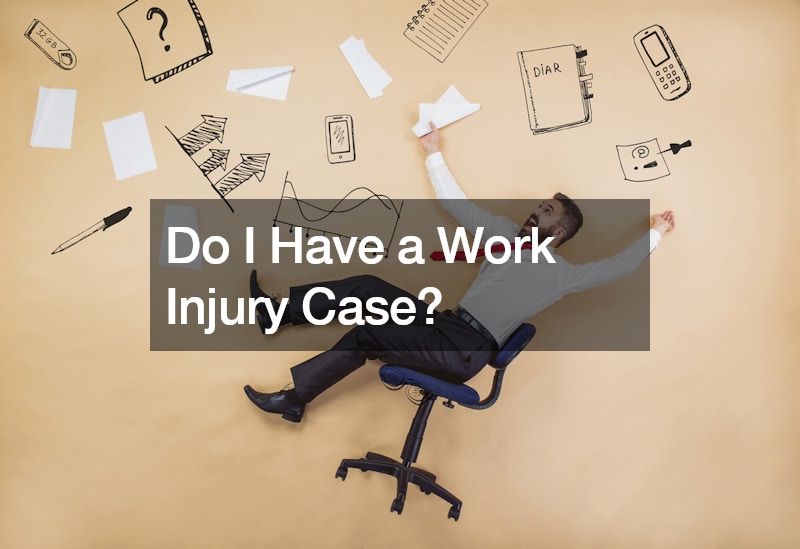Workplace injuries can be both physically and emotionally taxing. If you’ve been injured at work, you might be wondering whether you have a valid work injury case. Understanding the key elements that constitute a work injury case can help you determine your next steps and ensure you receive the compensation you deserve.
Understanding Workplace Injuries
A workplace injury is any injury or illness that occurs in the course of employment. These injuries can range from minor cuts and bruises to severe conditions like broken bones, repetitive strain injuries, or illnesses caused by exposure to hazardous materials. Common causes of workplace injuries include slips and falls, machinery accidents, overexertion, and exposure to toxic substances.
Reporting the Injury
The first step in determining if you have a work injury case is to report the injury to your employer as soon as possible. Timely reporting is crucial, as many states have specific deadlines for reporting workplace injuries. Failing to report the injury promptly could jeopardize your ability to file a claim. Ensure that the report is documented in writing and keep a copy for your records.
Seeking Medical Attention
After reporting the injury, seek medical attention immediately. Even if the injury seems minor, it’s important to get a professional evaluation. Some injuries may not manifest symptoms immediately but can develop into serious conditions over time. Documenting your medical treatment is essential, as these records will serve as evidence in your work injury case.
Determining Employer Negligence
To have a valid work injury case, you must establish that your employer was negligent or that the injury occurred due to unsafe working conditions. Philadelphia work injury attorneys can help with this. Employer negligence can take many forms, including:
- Failure to Provide a Safe Work Environment: Employers are required to maintain a safe workplace by following industry regulations and safety standards. If your injury was caused by unsafe working conditions, you might have a case.
- Lack of Proper Training: If your employer did not provide adequate training for the job, and this lack of training led to your injury, this could be a basis for a work injury case.
- Defective Equipment: If the equipment or machinery you were using was defective and caused your injury, your employer could be held responsible for not maintaining safe equipment.
- Inadequate Safety Gear: Employers must provide the necessary safety gear for their employees. If you were not provided with or instructed to use proper safety gear, this could constitute negligence.
Workers’ Compensation vs. Personal Injury Claims
Most workplace injuries are covered under workers’ compensation laws, which provide benefits regardless of fault. Workers’ compensation covers medical expenses, rehabilitation costs, and a portion of lost wages. However, accepting workers’ compensation benefits typically means you cannot sue your employer for additional damages.
In some cases, you may have grounds for a personal injury claim if the injury was caused by intentional harm, gross negligence, or a third party. Personal injury claims can provide compensation for pain and suffering, emotional distress, and full wage replacement, but they require proving fault and negligence.

Consulting a Work Injury Attorney
Navigating the complexities of a work injury case can be challenging. Consulting with experienced Philadelphia work injury attorneys can help you understand your rights and options. An attorney can guide you through the process of filing a claim, gather necessary evidence, and negotiate with insurance companies on your behalf.






